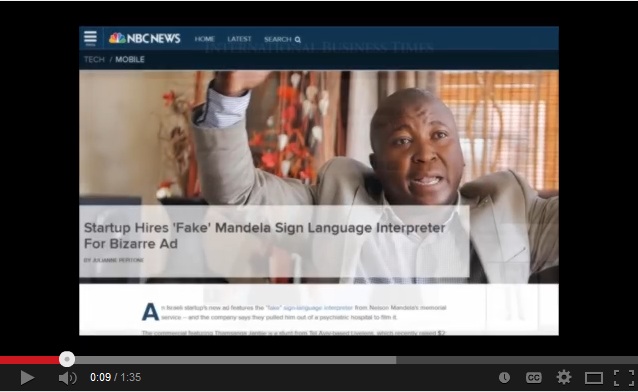The Power of the Educational Interpreter
Let’s talk about your power as an educational interpreter. “I only facilitate communication,” you say, hiding behind your hands. “I don’t have any real power.” Be honest. Next time admit, “I facilitate communication and impact, for better or worse, all situations I interpret.” One example of what comes after the ‘and’ is what we’ll discuss today.
“I only facilitate communication,” you say, hiding behind your hands. “I don’t have any real power.” Be honest. Next time admit, “I facilitate communication and impact, for better or worse, all situations I interpret.” One example of what comes after the ‘and’ is what we’ll discuss today.
The Situation
As an educational interpreter you have duties outside of classroom interpreting which include interpreting impromptu meetings between students and non-signing staff. Today, you’ve just been asked to escort a student to the Senior Advisor’s office so she can ask for her money back as she decided not to go to prom.
The Background
You’ve known this student for 3 ½ years now. You know she’s never been in trouble, is very polite to adults, and tends to be shy. You also know the Senior Advisor and that she works well with the teenagers in the building including the deaf students. You also know that the Deaf Services office has a good working relationship with the Senior Advisor office. The meeting should take 5 minutes and be painless.
Your Power
Yet, have you considered that you could create tension in this situation? One goal of the Deaf Services office is for the seniors to be more independent. Is now the time you’ll let your student advocate for herself? Will you let the student struggle to ask for her money back, or will you lead the narrative? Will you nurture the relationship between the Deaf Services office and the Senior Advisor office, or will you Deaf Pride the place down? Will you voice aggressively? Passively? What kind of comments will you make to your deaf student while the senior advisor is processing her request? How about after you leave the office? These are the questions you should be considering on your walk to the Senior Advisor’s office.
What Happens
The deaf student leads you into the Senior Advisor’s office. She signs, “Hi.” Then she smiles and looks at you and looks at the senior advisor and she shrugs nervously and signs very small and very fast, “money. I-don’t know. Whatever.” And not ‘whatever’ with and attitude, but ‘whatever’ like, “nevermind. I want to leave.” Then she turns bright red.
smiles and looks at you and looks at the senior advisor and she shrugs nervously and signs very small and very fast, “money. I-don’t know. Whatever.” And not ‘whatever’ with and attitude, but ‘whatever’ like, “nevermind. I want to leave.” Then she turns bright red.
Option #1–Lead
You voice, “Hi. Its great to see you again. Um, I hate to ask, but could I have the money for prom back because it turns out I can’t go. Is that ok?” You’ve stayed true to your student’s voice and intent but you added a lot of words and basically took over the entire conversation. Is that right or wrong? The senior advisor happily processes the refund because the student asked politely and she had a pleasant interaction with you. The senior advisor has also had one more positive interaction with your office. You created a great outcome. Just consider the expense. Your student is no more independent now than when she walked into the office.
Option #2–Interpret literally
You voice, “Hi, um can I get my money back. Or, I don’t know. Whatever.” You’ve stayed true to the student’s words and perhaps her voice and intent. But, the senior advisor is unnecessarily confused. Even the toughest kids have enter her office with courtesy and provide explanations for their requests. Your student will still get her money back, but the senior advisor will be left with a bad taste in her mouth. She will be wondering why this deaf student was rude today when she never had been before. Or, she’ll assume all the diva interpreters in the Deaf Services office are too big for their britches. You awkwardly forced your power onto a deaf student who didn’t want it, put your student in a bad light, and broke down communication avenues between offices.
Option #3–Prep with your student
On your walk to the Senior Advisor office you ask your student why she is going to the office. (Who cares if you already know. Ask anyhow. You’ll be surprised what you learn.) Next ask your student if she wants to ask herself or if she wants you to interpret. Again, you may be surprised. You walk into the Senior Advisor office with your student and she sign, “Hi.” She looks at you and looks at the senior advisor and then continues, “I can’t go to prom. Can I get my money back?” This is the sweet and polite student your senior advisor knows. Of course she can get her money back and of course she loves working with the Deaf Services office.
Conclusion 
Obviously, there are more than three ways this scenario could have played out. My point is: you impact the result of the interaction. For good or bad, you’re part of the equation. Use your power to facilitate communication, yes! But don’t ignore the side effects of that power. Harness your power for a positive outcome.
Additional Readings:
Ethical Choices: Educational Sign Language Interpreters as Change Agents http://www.streetleverage.com/2013/04/ethical-choices-educational-sign-language-interpreters-as-change-agents/
What is the Role of the Educational Interpreter? http://www.classroominterpreting.org/Parents/Role.asp










